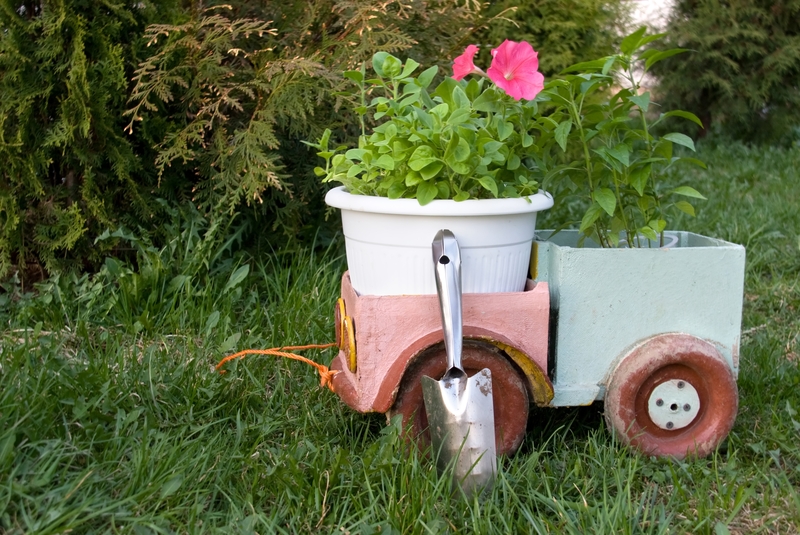Make Every Room a Part of Your Eco-Friendly Home Effort
Creating an eco-friendly home doesn't have to be an overwhelming task. By incorporating sustainable practices room by room, you can significantly reduce your carbon footprint and create a healthier living environment. From using energy-efficient appliances to selecting sustainable materials, every small change contributes to a larger impact. Follow these tips to transform each space in your home into a sustainable sanctuary.
The Eco-Friendly Living Room: A Green Centerpiece
1. Lighting Choices that Save Energy
The living room is often the hub of family activities and a great opportunity to implement energy-saving solutions. Opt for LED bulbs instead of traditional incandescent ones. They last longer and use less energy, contributing to lower utility bills.
- Install dimmer switches to control light intensity.
- Utilize natural light by keeping windows unobstructed.
2. Sustainable Furniture and Decor
Choose furniture made from renewable resources such as bamboo or recycled materials. Look for products that have been certified by sustainable organizations to ensure they meet eco-friendly standards.
Consider incorporating plants into your decor, which can help purify the air and bring a touch of nature indoors. Choose low-maintenance varieties like succulents or snake plants if you're not confident in your gardening skills.

A Green Bedroom: Rest Easy with Sustainability
3. Bedding and Textiles
Your choice of bedding materials has a significant impact on your ecological footprint. Opt for organic cotton, bamboo, or linen. These materials are grown without harmful chemicals and are more biodegradable than synthetics.
4. Energy-Efficient Heating and Cooling
Instead of relying heavily on central heating or air conditioning, consider alternative solutions to minimize energy use. Use thermal curtains to keep warmth in during colder months and out during the summer. Proper insulation in your walls and ceilings can also help maintain a comfortable temperature.
Eco-Friendly Bathroom: A Water-Conserving Sanctuary
5. Water-Saving Fixtures
Install low-flow showerheads and faucets to reduce water usage. Dual-flush toilets offer an eco-friendly option by allowing you to choose between two flush volumes.
- Repair leaks promptly to prevent water wastage.
- Consider a greywater system to recycle water from sinks and showers for lawn irrigation.
6. Eco-Conscious Products
Switch to biodegradable and chemical-free cleaning products as well as personal hygiene items. Many mainstream products contain toxins that are harmful to the environment and your health.
Additionally, avoid single-use plastics. Opt for reusable options such as glass or stainless steel containers and bamboo toothbrushes.
The Green Kitchen: A Haven for Sustainability
7. Energy-Efficient Appliances
Investing in energy-efficient appliances can significantly reduce your home's energy consumption. Look for models with the Energy Star certification.
8. Compost and Reduce Waste
Composting is an excellent way to reduce kitchen waste. Your food scraps can be turned into rich compost for your garden, reducing landfill contributions and nourishing your plants. Additionally, be conscious of packaging: choose products with minimal or recyclable packaging.
Basement and Attic: Maximizing Your Eco-Friendly Space
9. Insulate Properly
Proper insulation in your attic and basement can significantly lower your heating and cooling costs. Look for comprehensive solutions and materials that are eco-friendly, such as recycled fiberglass.
10. Use Reclaimed Materials for Renovations
Whenever remodeling these spaces, consider using reclaimed materials. This not only reduces waste but can also add a unique character to your home.

Garage and Outdoor Spaces: Extend Your Green Efforts
11. Eco-Friendly Vehicles and Charging Stations
If you own an electric vehicle, consider installing a home charging station. If you haven't made the swap yet, start by using more bike rides or carpooling to reduce your fuel emissions.
12. Sustainable Landscaping
Implement landscaping practices that require less water and fewer chemicals. Using native plants and trees can reduce the need for excessive watering and fertilization.
- Collect rainwater to use in irrigation.
- Use mulch to retain soil moisture.
Conclusion: Embrace the Eco-Friendly Lifestyle
Making every room in your home a part of your eco-friendly effort doesn't have to be a daunting task. By tackling each space individually and making incremental changes, you can contribute positively to the environment. Remember, every little step counts, and collectively they lead to a significant impact.
Start today by choosing one room to focus on, implement the suggested changes, and gradually expand your efforts throughout your home. Let's take part in creating a more sustainable world, one room at a time.